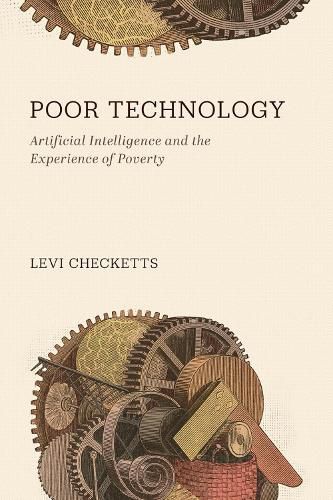Readings Newsletter
Become a Readings Member to make your shopping experience even easier.
Sign in or sign up for free!
You’re not far away from qualifying for FREE standard shipping within Australia
You’ve qualified for FREE standard shipping within Australia
The cart is loading…






In recent years, artificial intelligence (AI) has moved in popular discourse from the purview of science-fiction imaginings to the key financial sector of the twenty-first century. As world powers, trillion-dollar companies, and public intellectuals emphasize the importance of AI, the general concerns people raise relate to economic movement, control, bias, and safety.??
This book adds a further concern, namely the way our approach to AI reinforces assumptions about dignity and personhood tied to the sort of thinking that is characteristic of bourgeois capitalists. The experience of poverty reveals that people who are poor do not think the same way as the upper classes--their experience of the world must be understood through the reality of survival within resource-scarce settings and the attendant domination and discrimination that come with being poor. These experiences do not fit well with the "ideal choice" selection model that underlies AI modeling, and numerous failures of AI to help the poor demonstrate that those who benefit primarily from AI are those who already live well.??
As a result, the fervor surrounding AI often serves to dehumanize the poor by eliminating employment opportunities, automating social work, reinforcing biases, and prioritizing profit over stability. Worst of all, however, AI functions to satisfy a psychological need for us to have "others" against whom we can distinguish ourselves without having to feel guilty about the reality of the struggle of the poor. Taking seriously the theological perspective of the "preferential option for the poor," this work contends that to avoid relegating poor people to nonhuman status, we must be willing to put aside the fantasy that AI is "intelligent" and focus rather on the all-too-human embodied reality of the poor.
$9.00 standard shipping within Australia
FREE standard shipping within Australia for orders over $100.00
Express & International shipping calculated at checkout
Stock availability can be subject to change without notice. We recommend calling the shop or contacting our online team to check availability of low stock items. Please see our Shopping Online page for more details.
In recent years, artificial intelligence (AI) has moved in popular discourse from the purview of science-fiction imaginings to the key financial sector of the twenty-first century. As world powers, trillion-dollar companies, and public intellectuals emphasize the importance of AI, the general concerns people raise relate to economic movement, control, bias, and safety.??
This book adds a further concern, namely the way our approach to AI reinforces assumptions about dignity and personhood tied to the sort of thinking that is characteristic of bourgeois capitalists. The experience of poverty reveals that people who are poor do not think the same way as the upper classes--their experience of the world must be understood through the reality of survival within resource-scarce settings and the attendant domination and discrimination that come with being poor. These experiences do not fit well with the "ideal choice" selection model that underlies AI modeling, and numerous failures of AI to help the poor demonstrate that those who benefit primarily from AI are those who already live well.??
As a result, the fervor surrounding AI often serves to dehumanize the poor by eliminating employment opportunities, automating social work, reinforcing biases, and prioritizing profit over stability. Worst of all, however, AI functions to satisfy a psychological need for us to have "others" against whom we can distinguish ourselves without having to feel guilty about the reality of the struggle of the poor. Taking seriously the theological perspective of the "preferential option for the poor," this work contends that to avoid relegating poor people to nonhuman status, we must be willing to put aside the fantasy that AI is "intelligent" and focus rather on the all-too-human embodied reality of the poor.